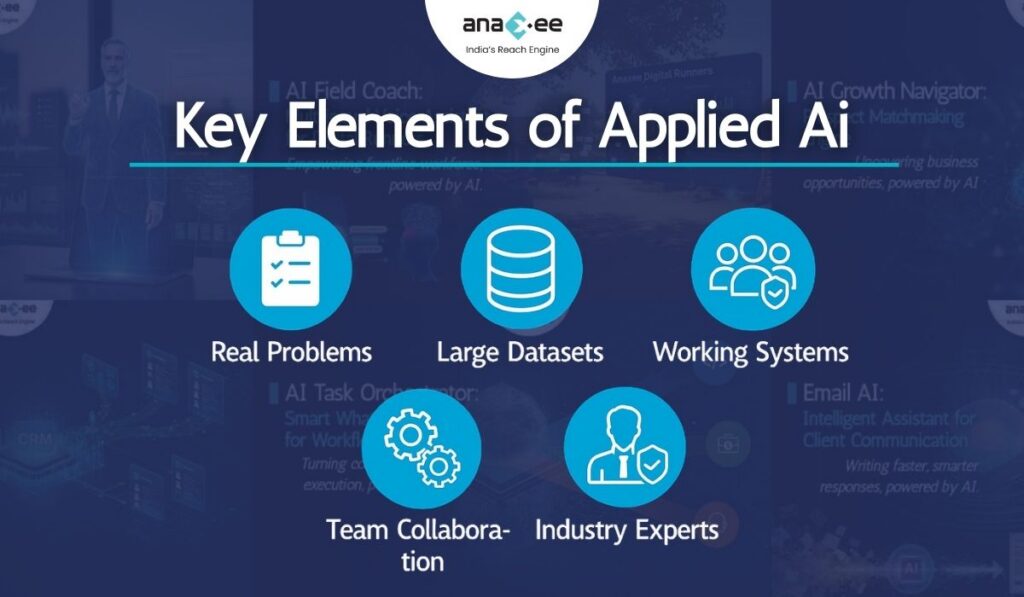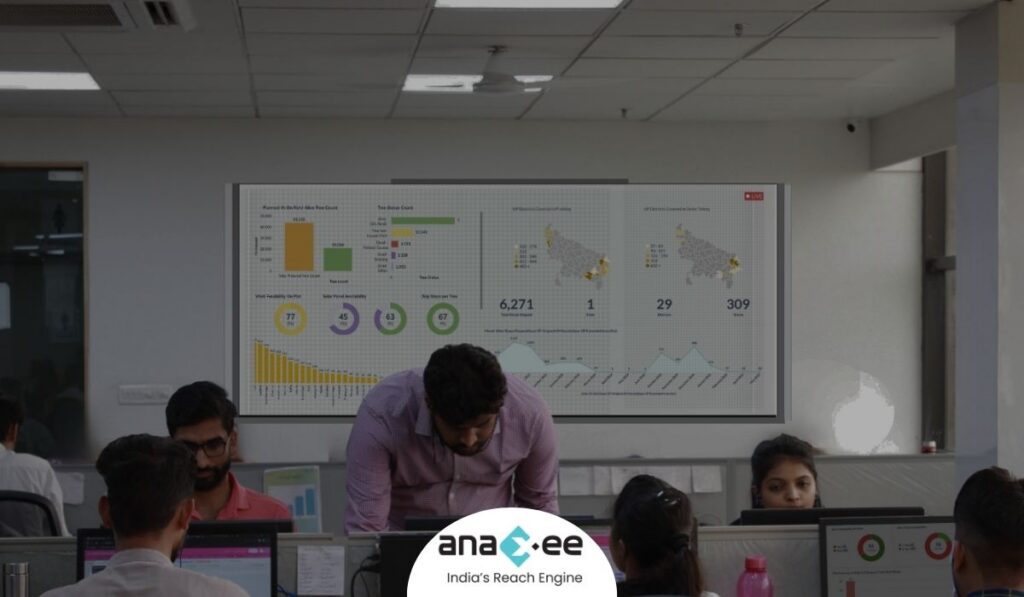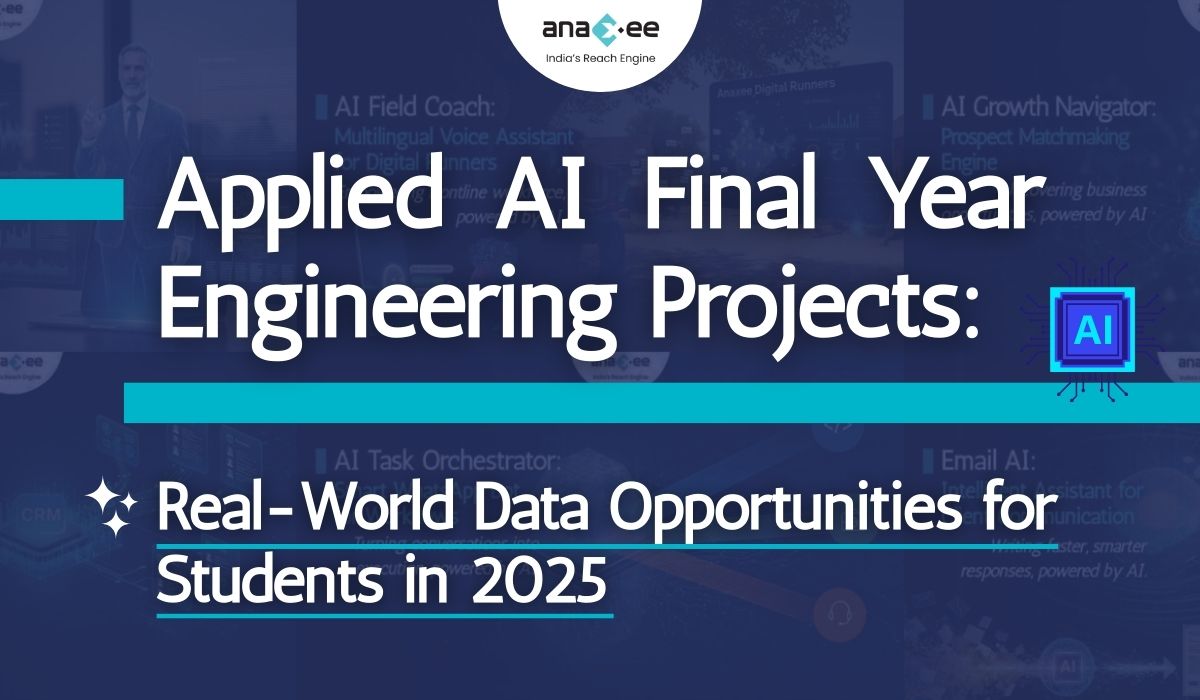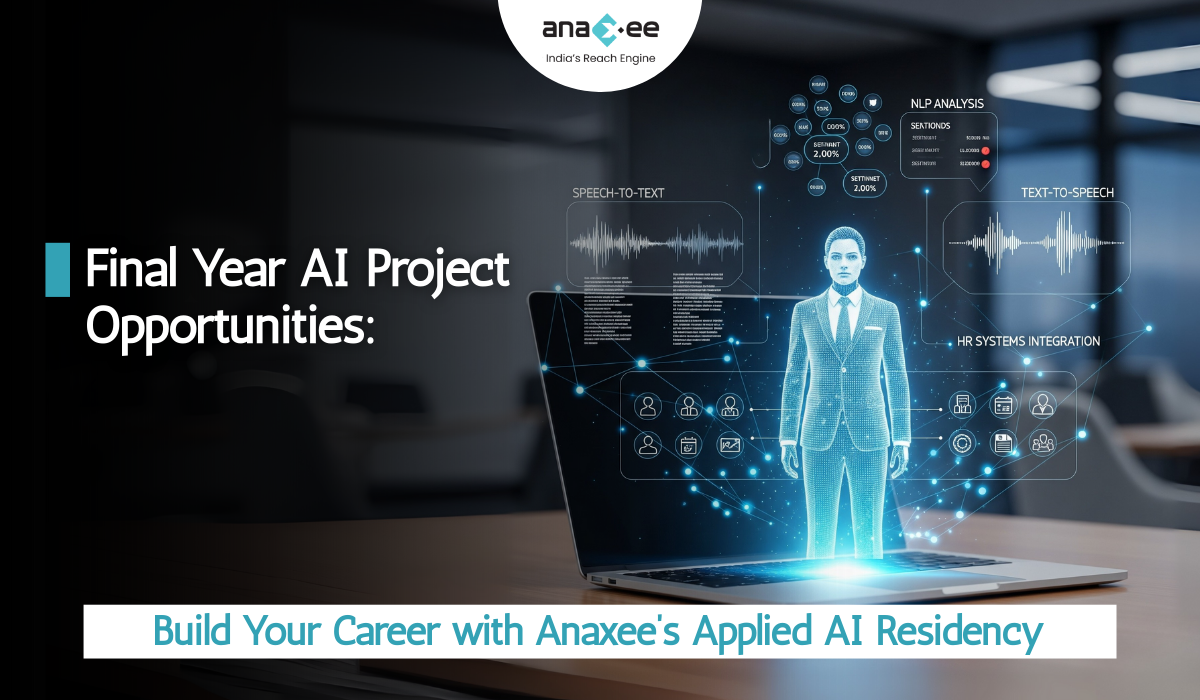Best Final Year AI Project Ideas with Real Datasets in 2025
Introduction: The Turning Point of Final Year Projects
For most students in India, the final year of engineering or MCA is both exciting and stressful. This is the year when you need to balance exams, placements, and one big milestone: the final year project.
On paper, the project is meant to showcase everything you’ve learned. But in reality, many students end up doing recycled work — face recognition systems, library management apps, or datasets downloaded from Kaggle. These projects tick the academic requirement, but they rarely help you stand out in job interviews.
That’s why choosing the right project matters. Your project can either be just a formality — or it can be the stepping stone into your career.
Why Traditional College Projects Fall Short
Let’s be honest. We’ve all seen it happen. Final year projects in many colleges tend to have common issues:
-Outdated problem statements: Projects that don’t match what the industry is working on today.
-Limited datasets: A few hundred rows of CSV data or synthetic test cases.
-Minimal exposure to deployment: Projects end at “code works” but never get tested in real environments.
-Copy-paste culture: Many students simply reuse old code or ready-made solutions.
The outcome? Students graduate with a degree, but without the confidence to say, “I can solve real-world problems with technology.”
The Rise of Applied AI
Industry today is moving fast, and one of the biggest shifts is the rise of Applied AI. Unlike pure research, applied AI is about taking theoretical concepts and implementing them in real, practical environments.
This means:
-Training voice assistants that work in multiple Indian languages.
-Building computer vision models that check image quality in real time.
-Automating repetitive tasks like emails, CRM updates, or WhatsApp-based task tracking.
-Validating massive amounts of field data collected from across the country.
Applied AI is not just about coding — it’s about understanding how AI fits into business, operations, and real-world decision making. And that’s exactly the kind of experience final year students need.

Why Real Datasets Make All the Difference
Ask any recruiter in tech and they’ll tell you: working on real datasets separates average projects from impactful ones.
Here’s why real-world data matters:
-Scale: Instead of 500 rows, you get terabytes of voice calls, images, emails, or videos. Handling this scale builds true data engineering skills.
-Messiness: Real data has noise, errors, missing values, and inconsistencies — preparing it is half the job.
-Relevance: You’re solving problems that companies actually face, not just theoretical case studies.
-Portfolio power: When you show a recruiter that your model worked on real-life messy datasets, you instantly stand out.
The Opportunity: Anaxee’s Applied AI Residency 2025
This is where Anaxee Digital Runners, based in Indore, steps in with the Applied AI Residency 2025.
The program is built for final year engineering and MCA students who want their projects to go beyond theory.
What makes it unique?
-Access to datasets collected by Anaxee over the last nine years — including images, audio calls, surveys, and text records.
-Projects designed around real business use-cases — from AI assistants to automated quality control systems.
-Mentorship from both industry experts, founder level and faculty.
-Live testing environment — your AI models don’t just sit in a folder, they run inside Anaxee’s operations.
-This isn’t about simulated exercises — it’s about building AI that works in the real world.
Who Should Apply?
-Students in final or pre-final year of B.E., B.Tech, M.E., M.Tech, or MCA.
-Students who want to do more than just pass exams — those aiming for a career in AI, ML, or data science.
-Colleges looking to partner for industry-academic collaboration in project execution.
Benefits for Students
Practical Skills
Learn how to preprocess messy data, build scalable models, and deploy AI systems.
Gain exposure to NLP, computer vision, RAG pipelines, and multilingual AI.
Industry Alignment
Work on problems companies face today — automation, data quality, customer engagement.
Portfolio Building
Graduate with projects that impress recruiters. Instead of just saying “built a chatbot,” you can say “built an AI system trained on thousands of real conversations.”
Mentorship
Guidance from industry professionals and structured support for project execution.
Career Boost
Having applied AI projects in your resume makes you far more attractive to employers in tech, consulting, or even startups.
Example Project Themes
Students could work on:
-Conversational AI: Voice-based agents that guide and assist users.
-Data Quality Automation: AI systems that flag errors in images, forms, or text before they’re submitted.
-Sales & Productivity AI: Automating CRM management, email drafting, and task orchestration.
-AI for Decision Making: Building systems that simulate executive decision styles.
-Recruitment AI: Interview bots trained on real hiring data.
These aren’t hypothetical—they’re drawn from actual business needs.
The Application Process
Step 1: Profile Completion
-Students create their profile with details like semester, degree, GitHub link, and past experiences.
Step 2: Proposal Submission
-Choose a project theme.
-Write a short proposal (minimum 500 words) describing your approach, tech stack, and timeline.
Step 3: Selection & Onboarding
-Proposals are evaluated.
-Selected students start working with datasets and mentor support.
FAQs Students Ask
Q: Can this project count as my official final year project?
Yes. It is designed to fit academic requirements.
Q: What skills do I need before applying?
Basic programming knowledge is enough. You’ll learn advanced skills during the residency.
Q: How long does it last?
1–2 years, depending on your course duration and final year structure.
Q: Why Anaxee?
Because no other platform gives you this level of access to live Indian datasets and real-world testing environments.
Why This Matters for Your Career
Think about it this way: when you sit for your placement interview, and the recruiter asks, “Tell me about your final year project,” what do you want to say?
-Option 1: “I built a basic chatbot using a small dataset I found online.”
-Option 2: “I built a multilingual AI assistant trained on real user conversations, tested in live environments, and mentored by industry experts.”
The second answer not only makes you memorable, but it also proves you’re job-ready.
Closing: Your Chance to Build More Than Just a Project
Your final year project is a one-time opportunity. It can be just another academic requirement — or it can be the launchpad for your AI career.
With Anaxee’s Applied AI Residency 2025, you get the resources, mentorship, and real-world exposure that no typical college project can offer.
👉 Applications are open now. Visit students.anaxee.com and secure your seat before October 31, 2025.
Seats are limited. Don’t just build a project — build your career.





